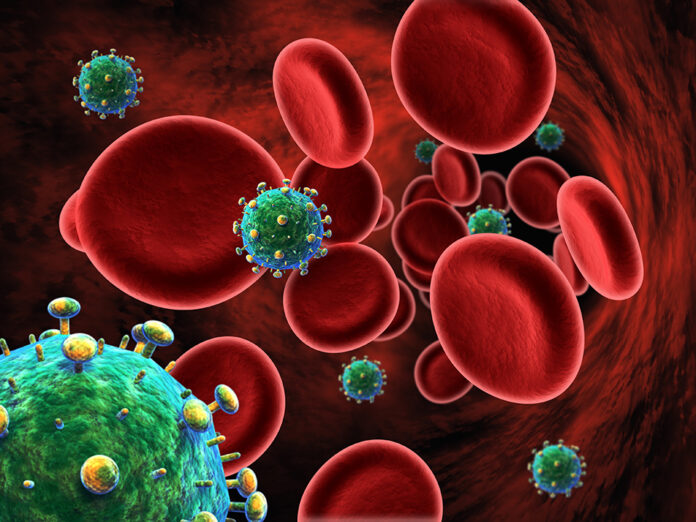Although swollen lymph nodes are fairly common and not a cause for concern, you should also not take it too lightly. These parts of the body are also called lymph nodes and their main role is to help the body fight infection. Swollen lymph nodes can be the result of a bacterial or viral infection, but the fact is that it can also occur due to some more serious diagnoses, such as malignancies. In case you notice that your lymph node is swollen, it is a good idea to immediately go to the doctor and remove the doubts. Your doctor will make a diagnosis and establish therapy in accordance with it. Below you can read more about the main signs and symptoms of swollen lymph nodes.
The main causes of lymph node swelling

There are several different causes that lead to swollen lymph glands. Some of the most common are bacterial and viral infections, and sometimes swelling occurs due to malignant diseases.
Here are some of the conditions that can lead to swollen lymph nodes:
1. Ear infections
Allergic reactions or viruses can cause fluid to build up in the ear, which can lead to infection. As a result, there is swelling of the lymph nodes in the region in front of or behind the ears.
2. Strep throat

Swelling of the lymph nodes often occurs as a consequence of strep throat – an infection of the throat and tonsils that occurs under the influence of the bacterium Streptococcus. In addition to affecting the lymph nodes, this condition leads to other symptoms: fever, sore throat, and others. In this situation, the lymph nodes swelling will recede after adequate antibiotic therapy, which also further prevents complications that can occur in the kidneys and heart.
3. Mononucleosis
Mononucleosis is a salivary infection caused by Epstein Barr virus. It is common in children at puberty, and one of the manifestations of the disease is swollen lymph glands in the neck, which often subsequently causes swelling of the tonsils.
4. Abscess tooth
This dental infection leads to swollen lymph glands of the neck or jaw, and occurs as a result of untreated cavity, inadequate dental work, and even mouth injuries. An abscess tooth, in addition to affecting the lymph nodes, also causes bad breath and pus leakage.
5. AIDS

One of the early manifestations of HIV infection is swollen lymph nodes in the groin, armpits and neck region. They can also occur later as a result of opportunistic infections that have developed in the body due to a damaged immune system.
6. Other conditions
In addition to these infections, swollen lymph nodes can be a consequence of conditions such as rheumatoid arthritis, lymphoma, tuberculosis, tonsillitis, toxoplasmosis and metastatic cancer.
All of this shows you how diverse the causes of swollen lymph glands are, so it is crucial that as soon as you notice that something is happening, you go to the doctor to make a diagnosis. According to The ENT Clinic doctor, Dr Jeeve, Dr Hobbs and Dr Annabelle from www.entclinic.sg in Singapore, once the correct diagnosis of your lymph node swelling is made, the ENT doctor will perform the appropriate treatment procedures after a comprehensive explanation with the patient.
Signs and symptoms of swollen lymph nodes

As mentioned earlier, swollen lymph nodes are not always a cause for concern, as sometimes their cause is quite harmless, but they are always a sign that something is going on in the body and that you need to take the necessary measures.
The first signs and symptoms you will have when the lymph nodes are swollen are tenderness and pain in the lymph nodes, as well as swelling that is usually the size of a pea, but can be larger, which is an additional reason to see a doctor as soon as possible.
Other symptoms that may occur vary, mostly depending on the underlying cause of the swollen lymph glands. Some of them are:
- Fever and night sweats
- Nasal discharge, sore throat and other symptoms that clearly indicate that some type of upper respiratory tract infection has occurred
In the event that the lymph nodes begin to swell, not just in one region, but throughout the body, this may be an early manifestation of HIV infection or Epstein Barr virus infection. However, swollen lymph nodes in several regions can also be the result of a compromised immune system in people with rheumatoid arthritis or lupus.
If you notice that the swollen lymph nodes are very hard and enlarge quickly, this may be due to lymphoma or cancer. In any case, regardless of whether the lymph node enlargement is located in one region or is present throughout the body, it is important to visit a specialist as soon as possible and find out what is happening in your body, in order to take the necessary measures in time.
Treating swollen lymph nodes

Due to the fact that swollen lymph nodes are not a disease in themselves, but result from other infections and conditions, they usually recede as soon as the underlying condition is removed or brought under control.
When it comes to bacterial infections, antibiotics are used to cure the infection and return the lymph nodes to normal. When it comes to AIDS, antiretroviral drugs are used, which also eventually reduce lymph node swelling.
If the main cause is rheumatoid arthritis, lupus, lymphoma or cancer, it is necessary to apply therapy that is effective in these conditions, and when the disease is brought under control, withdrawal of swollen lymph nodes will happen as well.
Conclusion
Lymph nodes are the parts of our body that help it fight various infections and are therefore very important. Swollen lymph nodes indicate that something is going on in the body and that a diagnosis needs to be made as soon as possible. Swelling is sometimes the result of a bacterial or viral infection, but the underlying cause can sometimes be much more serious, such as lupus, rheumatoid arthritis, lymphoma or cancer. We suggest that if you notice swelling of the lymph glands as soon as possible visit a doctor who will make the right diagnosis and take measures in accordance with it.




